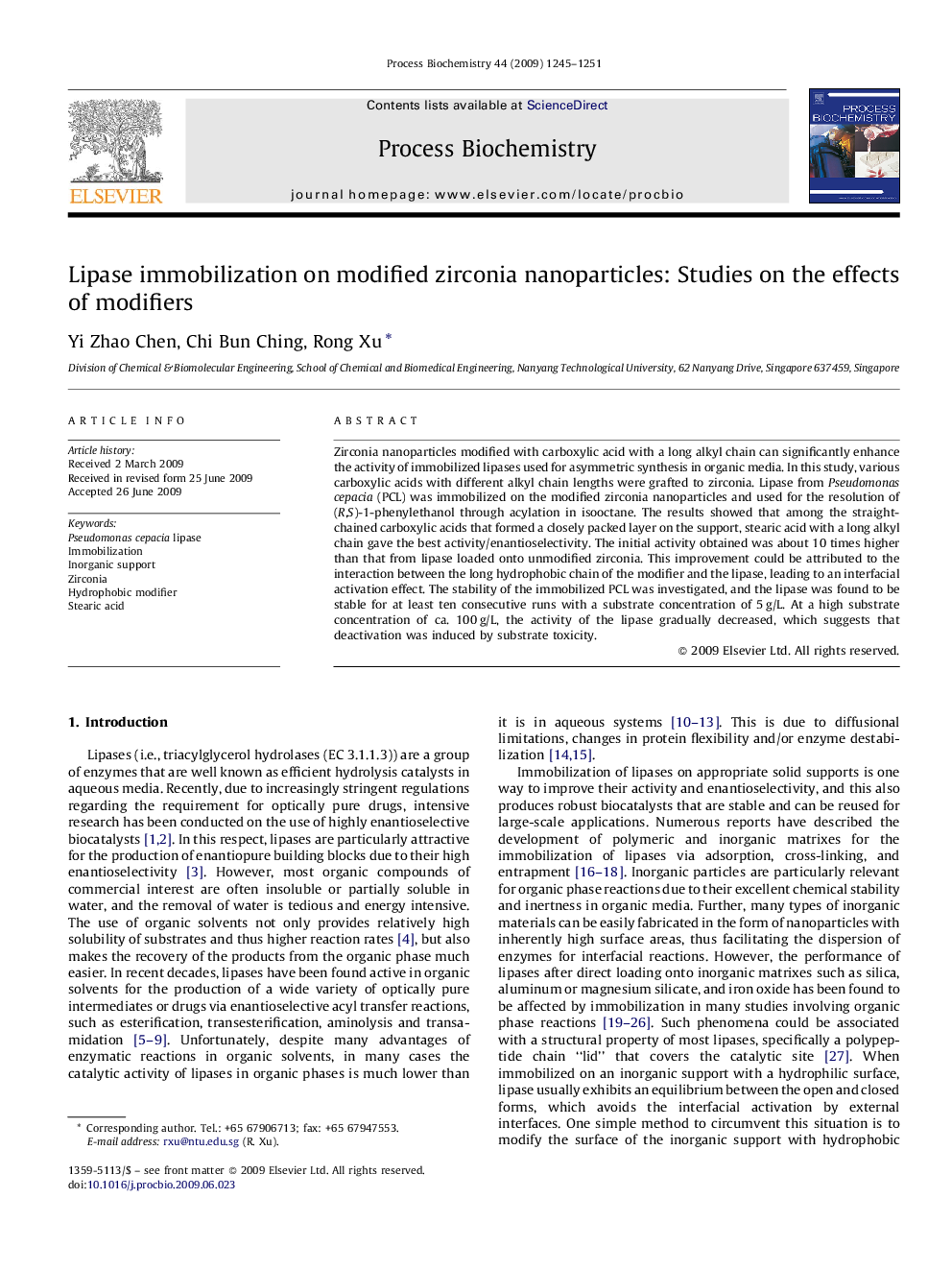| Article ID | Journal | Published Year | Pages | File Type |
|---|---|---|---|---|
| 35094 | Process Biochemistry | 2009 | 7 Pages |
Zirconia nanoparticles modified with carboxylic acid with a long alkyl chain can significantly enhance the activity of immobilized lipases used for asymmetric synthesis in organic media. In this study, various carboxylic acids with different alkyl chain lengths were grafted to zirconia. Lipase from Pseudomonas cepacia (PCL) was immobilized on the modified zirconia nanoparticles and used for the resolution of (R,S)-1-phenylethanol through acylation in isooctane. The results showed that among the straight-chained carboxylic acids that formed a closely packed layer on the support, stearic acid with a long alkyl chain gave the best activity/enantioselectivity. The initial activity obtained was about 10 times higher than that from lipase loaded onto unmodified zirconia. This improvement could be attributed to the interaction between the long hydrophobic chain of the modifier and the lipase, leading to an interfacial activation effect. The stability of the immobilized PCL was investigated, and the lipase was found to be stable for at least ten consecutive runs with a substrate concentration of 5 g/L. At a high substrate concentration of ca. 100 g/L, the activity of the lipase gradually decreased, which suggests that deactivation was induced by substrate toxicity.
